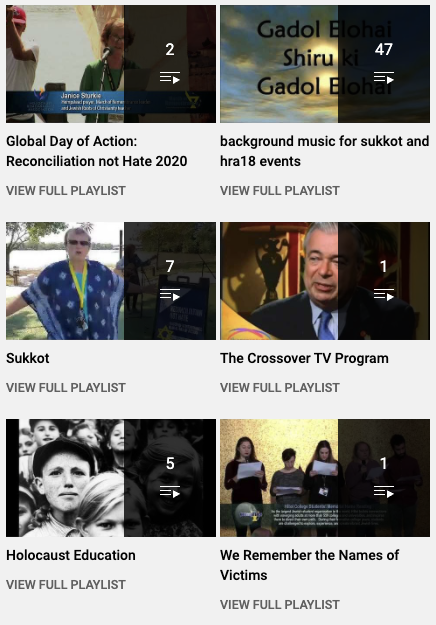May 1, 2025 – Dr. Susanna Kokkonen
Leviticus 12:1-16:33 (Haftorah: 2. Kings 7:3-20)
This week’s Torah portion presents more laws regarding ritual purity and impurity. Its name refers to two specific aspects.
Tazriah-Metzora*, the name of the Torah portion in Hebrew, means “conceiving something” and “a person having a mysterious skin disorder”, often translated as leper.
The sickness itself is called Tzarat. Because it can also appear on clothing and houses many commentators have argued that it is not really leprosy, as such. The treatment involves living outside the camp and then being inspected by a priest.
“When anyone has a swelling or a rash or a shiny spot on their skin that may be a defiling skin disease, they must be brought to Aaron the priest or to one of his sons who is a priest…the priest is to isolate the affected person for seven days…The priest is to examine that person…” (Leviticus 13:2,5,8; NIV)
There is an existing and corresponding treatment to the disorder appearing on garments or houses.
On April 3, 2025, we read of a victory brought about by lepers in the designated Haftorah.
The Aramean army was at war against Israel. Israelis were besieged. During prolonged siege cities often suffered from lack of water and food. This was the case here too.
At this time, hungry lepers were already excluded from the city. They decided to go into the enemy camp to either die or get some food. Suddenly they found it deserted. What they did not know was that God has caused the enemy, the Arameans to hear sounds; they had fled thinking that Israel’s allies were coming against them. The camp was empty and full of food whereas Israel was besieged and suffering hunger.
The lepers went and told the good news and Israel now had food.
There was however a doubting officer in Israel’ side. He did not believe that there could be food coming their way. Subsequently he died.
“The officer had said to the man of God, “Look, even if the Lord should open the floodgates of the heavens, could this happen?” The man of God had replied, “You will see it with your own eyes, but you will not eat any of it!” And that is exactly what happened to him, for the people trampled him in the gateway, and he died.” (2. Kings 7:19-20; NIV)
This event like so many others in the Bible underscores the importance of faith in impossible circumstances. The officer could not see that a supernatural deliverance had been prepared. Had he believed in the possibility, he would have seen the miracle.
The other interesting thing is the identity of the bearers of good news. They were lepers, the permanently disfigured ones who had to live outside the camp. This too seems to indicate that faith is required even at the moment of the miracle itself.
The State of Israel Reborn
It was on May 14, 1948, that the State of Israel was declared as an independent state. The declaration took place in Tel Aviv, a modern city in an ancient homeland. The declaration was made by David Ben-Gurion. The date in the Hebrew calendar is Iyar 5.
This Torah portion falls closest to that date. We recall that following the Declaration of Independence a terrifying war started. Several Arab armies attacked the fledgling state. Even many Holocaust survivors gave their lives for the independence of their old and new homeland, Eretz Israel and Medinat Israel.
Faith was needed in addition to physical strength. In impossible circumstances faith accomplished the impossible.
Healing
Interestingly, it is the story of Jesus healing a leper that is found in three gospels, those of Matthew, Mark and Luke.
“A man with leprosy came and knelt before him and said, “Lord, if you are willing, you can make me clean.” Jesus reached out his hand and touched the man. “I am willing,” he said. “Be clean!” Immediately he was cleansed of his leprosy. Then Jesus said to him, “See that you don’t tell anyone. But go, show yourself to the priest and offer the gift Moses commanded, as a testimony to them.” (Matthew 8:1-4; NIV)
What the story shows us is how Jewish Jesus was; how much Jesus appreciated the Tanach, His Bible, and how much He respected God’s law. Jesus in referring to what needs to be done is referring to the very text we read this very Sabbath.
At the time of writing these words, Israel is not only having its 77th Independence Day but huge, terrifying fires are raging near Jerusalem. It is almost as if the miracle of the state at 77 years is contested by such a huge catastrophe.
If you are reading this, please, just for a moment, stop whatever you are doing and pray for Israel and for those fighting the fires.
*For an explanation of the terms see the first Pearls of The Torah Portion Blog.
| Coral and crystal cannot be mentioned, and the striving for wisdom [is more precious] than pearls. | רָאמ֣וֹת וְ֖גָבִישׁ לֹ֣א יִזָּכֵ֑ר וּמֶ֥שֶׁךְ חָ֜כְמָ֗ה מִפְּנִינִֽים: |
Job 28:18 (NKJV)
Again, the kingdom of heaven is like a merchant seeking beautiful pearls, who, when he had found one pearl of great price, went and sold all that he had and bought it.
Matthew 13:45-46 (NKJV)
Torah Scrolls were attacked and desecrated during the Holocaust. The enduring images of the Kristallnacht (November 9-10,1938) are those of synagogues on fire and Torah Scrolls burning. Some of these desecrated Torah Scrolls disappeared, others were buried. Some were lovingly rescued and are on display in museums in various locations.


